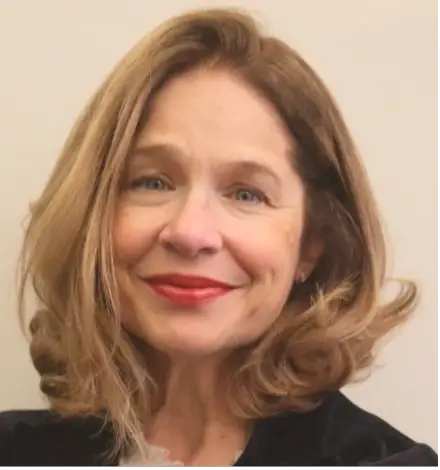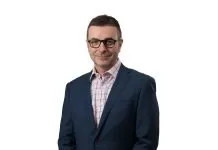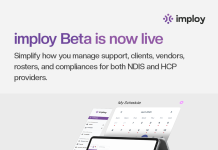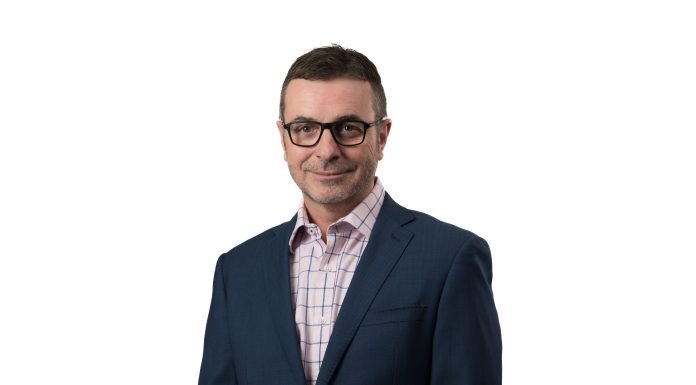In our last Aged Care Innovators webinar (you can watch it here), a question was raised by one of the panellists as to whether it would have been easier to start overseas first – as opposed to the 6 years they have spent establishing themselves in Australia. The conversation also moved to the extraordinarily long sales cycle in Australian aged care where it is not uncommon to be working on deals for 5 years or longer. Inside Ageing (IA) decided to explore this further and in this Q&A we hear from the Australian co-founder of a company that successfully started in the USA and is currently launching in Australia with DevaWorld – a dementia-friendly digital game designed for people with dementia.
The game, available on iPad and Android, features a slow-paced gameplay style, emphasising tapping rather than swiping. It takes users through a naturalistic setting, following a character named Julie in her home. The game aims to provide enrichment and entertainment for those living with dementia, allowing them to engage with soothing music and select various objects that come to life when touched. DevaWorld also offers caregivers a respite from their demanding responsibilities.
IA: How did DevaWorld come about and what led you to launch in the US ahead of Australia?
Mandy: I wanted to develop the prototype that I had built as part of my PhD and later found myself speaking at the Optimize Conference in the US and met people who were accelerating businesses in the digital health space. In 2018, I took part in a 3-month accelerator and pitch day – succeeding in gaining early investment.
To obtain the funding we needed to incorporate in the US. We incorporated as a C Corporation, which makes you an Inc – Mentia Inc.
This meant that we also needed to obtain a work visa (from Australia). Having a business valuation of $2m from our early investors meant we had something tangible to go with. The task was still onerous and costly, but necessary to get going. We ended up with an Employer-Investor Visa (E 2), which is given to promising businesses with the capacity to employ Americans.
IA: So far, it sounds like you’re off to a flying start. What happened next?
Mandy: Well, COVID arrived in March 2020 and we effectively went into hibernation for 2 years – back in Australia. We couldn’t pilot the solution during Covid and although we were back in Australia, aged care organisations were locked down, plus we were unknown here.
IA: Did you continue to apply for grants even though things were effectively paused?
Mandy: Yes, and we have been successful in receiving a grant from the National Institute of Health, which is the largest public funder of biomedical research in the world. It’s a US federally funded organisation for all matters health. They run a fund called Small Business Innovation Research (SBIR) which recognises and supports early-stage start-ups to build evidence and efficacy. I don’t believe there is an Australian equivalent, and we were fortunate enough to receive a Phase 1 grant of $500K. In Phase 2, companies can receive up to $2.5m. Importantly, these research funds, unlike investor funds, don’t impact the share pool.
IA: Readers of this interview who are start-ups themselves with Age-tech solutions will be thinking that the US market is sounding pretty good.
Mandy: Yes and no. The market is much bigger but then again, there are a more players compared to Australia. If we’re talking fall-prevention technology, for example, this is quite a crowded field – which is good of course; America loves competition. But Aussie market entrants need considerable resources, connections and grit to become known.
On the plus side for Australia, the R&D tax offset allowances are much more generous. We are the envy of the world on that front. However, there is a general sense that universities are the epicentre of research, whereas, in the US, knowledge transfer from universities to startups is faster and better supported. The breadth of players in the health tech sector demonstrates that – as do the funding opportunities that we have been lucky enough to participate in.
BIG IDEAS IN THE US ARE ALLOWED TO BREATH A BIT MORE
Mandy Salomon – Co-founder Mentia Inc
IA: Our last Aged Care Innovators Webinar had some of the panellists question whether it would have been easier to start overseas first and either launch in Australia as a parallel entity or much later. I suppose you have done this in that you are now launching in Australia after significant success in the US.
Mandy: If we had launched in Australia we would have gone down the road of R&D Tax Credits and perhaps some other grants to get us going. Dementia care in Australia follows the UK’s lead in taking a humanistic approach, whereas the US they ask: will the solution save me money? And, what will be my return on investment?
The Americans are also technology-forward, with AgeTech now recognised as a critical part of the four trillion longevity economy. We’re working with Dept of Ageing in California, which has invested $85m into delivering innovative training methods for helping migrant workers to enter the aged care workforce. Their modelling shows that the task of caring for older-aged adults won’t be filled by people born in the US.
IA: If I am correct, your journey so far has been 100% US grant funded and you are now launching into Australia after 5 years. I believe your offering has evolved in that time with the arrival of AI.
Mandy: Yes, we are working with John Hopkins University in the US to develop an AI solution that will make DevaWorld self-administered; meaning that it will allow those with moderate dementia to engage with the game on their own. The AI-assisted version of the game uses a speech and motion sensor to learn what the user is doing and through an Avatar respond in real-time with scenarios to suit. Our research has shown that people can prime themselves for activities of daily living by using our game, which helps to reduce care challenges.
IA: We might revisit the functionality of DevaWorld in a future discussion or perhaps even with you as a guest in one of our Aged Care Innovator webinars. We run them regularly with the next one on June 22.
Thank you for giving us such an insightful look at your business journey and best of luck with it.










